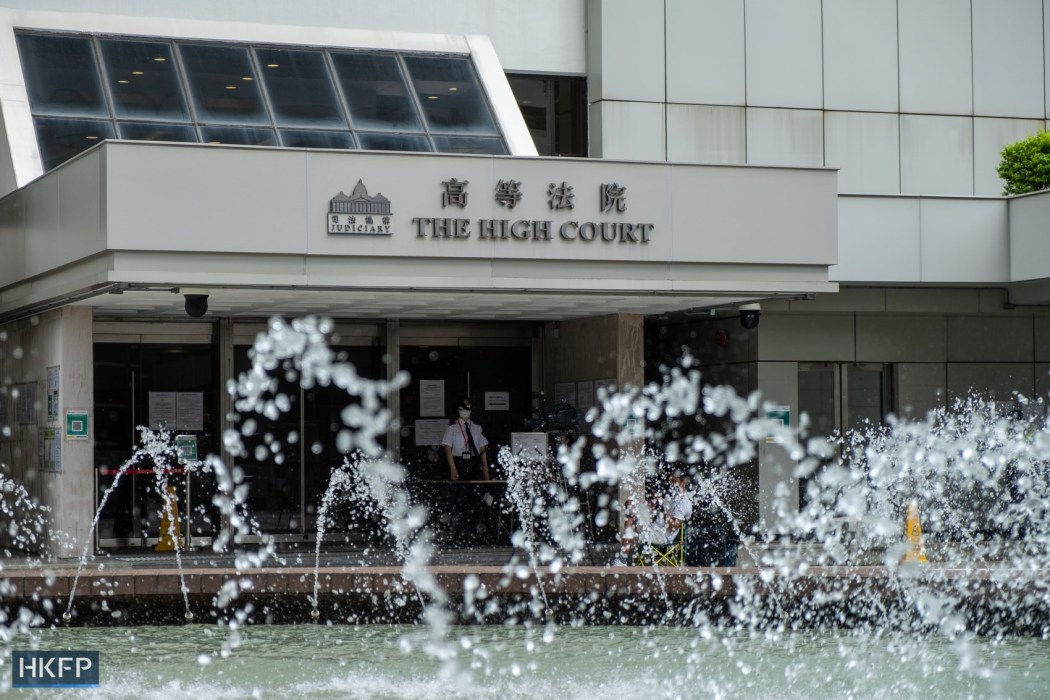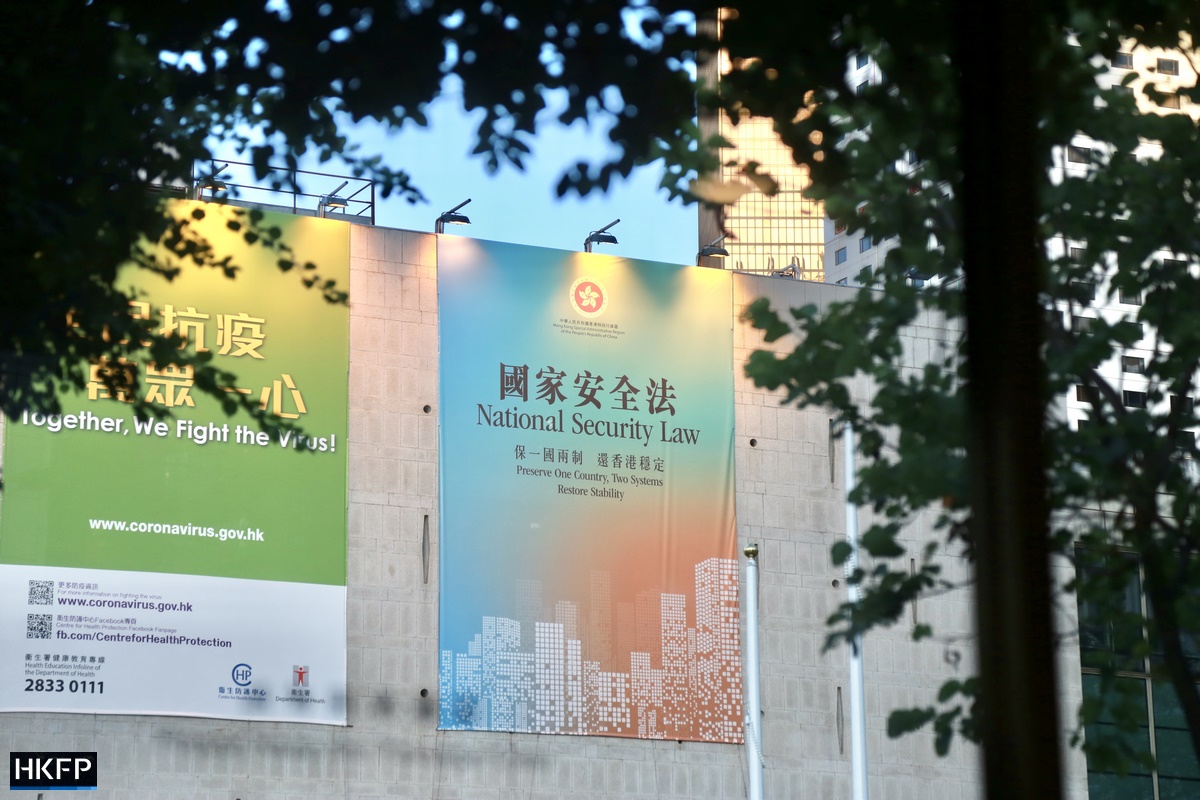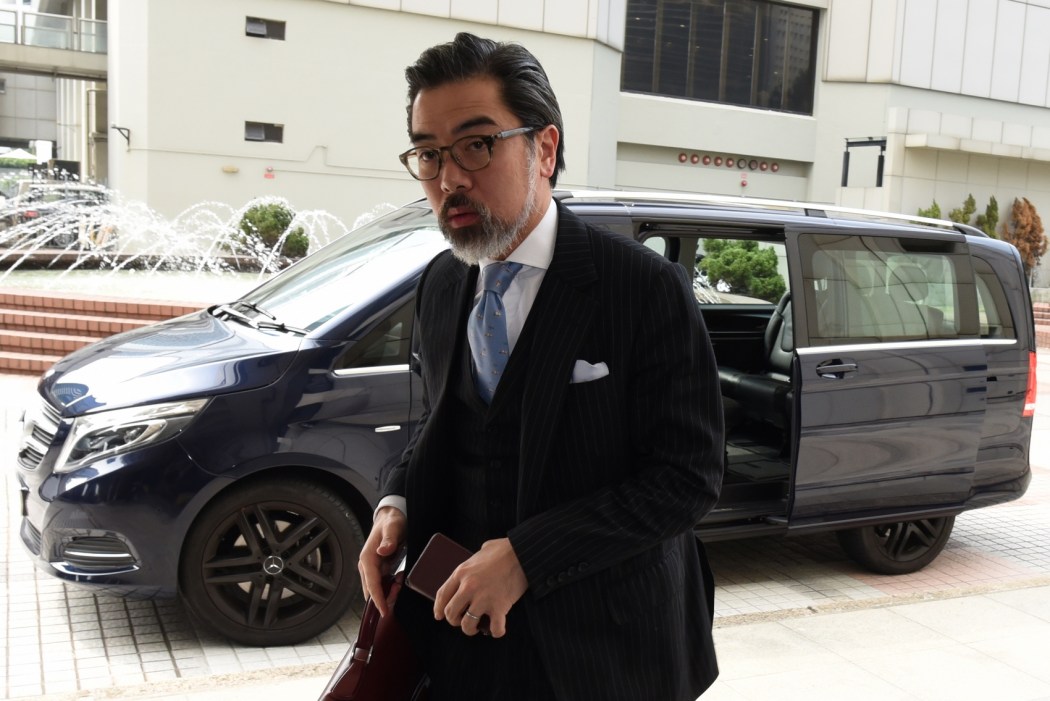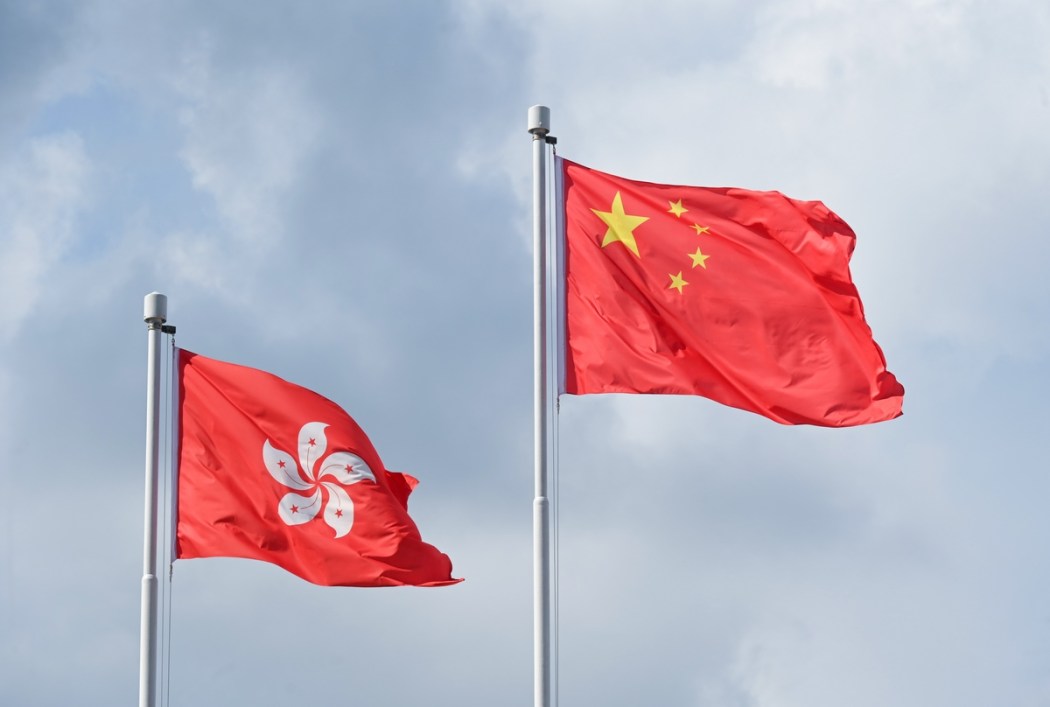The mainland Chinese criminal code is a “foreign law” that cannot be directly used to interpret the provisions of Hong Kong’s national security law, a court has said as it heard arguments on whether the Beijing-enacted legislation sets out minimum requirements for sentencing.
The Court of Appeal on Monday handled an application for leave to appeal filed by university student Lui Sai-yu, who sought to challenge a lower court’s decision not to shorten his prison term by one-third despite his guilty plea in a secession case.

Lui’s representative, Senior Counsel Edwin Choy, argued that the tiered sentencing regime listed in Article 21 of the security law pointed to starting points of imprisonment, depending on the severity of the offence. The sentencing court could consider imposing a jail term below the stated range by taking into account the usual mitigation factors, as well as a list of “powerful mitigating circumstances” in Article 33 of the security law, he said.
Those conditions were meant to encourage suspects to surrender or cooperate with the authorities after they offended, the lawyer said, adding the provision would give the court further power to exercise judicial discretion in meting out a lighter or reduced penalty.
“These are powerful mitigating factors. They are not exclusive, but important in enacting the national security law, by encouraging in the law itself for minor offenders to become the prodigal son and surrender or supply useful information to assist the case,” Choy told the appeal panel consisting of Chief Judge of the High Court Jeremy Poon and appeal justices Derek Pang and Anthea Pang.
Article 33 of the national security law stipulates that a lighter penalty may be imposed, or the punishment may be reduced – or even exempted in the case of a minor offence – if the offenders “voluntarily discontinue the commission of the offence,” “voluntarily surrender” themselves or report on the offence committed by other people or provide information that assists in solving other criminal cases.

In Lui’s case, Choy said his client had been “highly cooperative from the get-go” and had “come clean,” which he matched to the condition of giving a truthful account of the offence as stated in Article 33. His client, who had shown “consistent remorse,” therefore deserved to be given a full one-third sentence reduction as is customary with a guilty plea, the lawyer said.
The 25-year-old was initially sentenced to three years and eight months in jail in April after pleading guilty to inciting secession over selling weapons on the messaging app Telegram and posting pro-independence messages. District Judge Amanda Woodcock ruled it was an offence of a “serious nature,” which under the national security law would be met with imprisonment of not less than five years and no more than 10 years.
The District Court originally applied a one-third discount to the starting sentence of five-and-a-half years. But Woodcock later overturned her decision and raised Lui’s jail term to five years, after the prosecution said the court was bound by Article 21 of the security law to impose a minimum sentence of five years with no exceptional circumstances.
However, Choy argued that if the court does not grant a penalty discount to cooperative and remorseful defendants based on the security law provisions, it may affect the efficiency of the administration of justice. Suspects would believe they would be given substantial sentences regardless of their conduct, he said.
“[The provision should] express to the public that cooperation is something that would [warrant] a meaningful discount,” the senior counsel told the appellate judges.

Representing the Department of Justice (DoJ), Deputy Director of Public Prosecutions (Special Duties) Anthony Chau argued that Article 21 of the security law specified the “final term” that must be served by the defendant. The provision would not be “meaningful” if it did not signify a fixed minimum, he said.
The conditions listed in Article 33 of the national security law were also “exhaustive,” meaning they were the only factors that would allow a defendant to receive a lighter or reduced punishment, Chau told the appeal panel.
Chau submitted the criminal law of mainland China along with a translated copy of a book on how to understand and apply the criminal code. As the Beijing-imposed security law was a national law, Chau said the documents would help the court understand what was meant by “lighter” punishment and “reduced” punishment.
Chau’s submissions was questioned by the panel, with Poon saying the panel would not take into account the substantive mainland law when interpreting the provisions in the sweeping security legislation.
Hong Kong courts would adopt the common law approach, the chief judge said, adding the court would not know if the book Chau submitted was authoritative.

“You are giving us a substantive mainland law, which is a foreign law even if we are in One Country, Two Systems,” Poon said to the DoJ representative.
Lui’s application raised “important issues of law” related to the interpretation of Article 21 and 33 of the security law, the appeal panel said, adding that they were of “extreme importance.”
The court said they needed time to review the issues and would hand down a judgement within three months.
Lui’s bid to appeal against his sentence is set to have far-reaching implications on other national security cases. A defence counsel in the high-profile subversion case involving 47 pro-democracy figures told the court last month that her mitigation plea for her client who pleaded guilty may also make reference to legal arguments discussed in Lui’s case.
In June 2020, Beijing inserted national security legislation directly into Hong Kong’s mini-constitution – bypassing the local legislature – following a year of pro-democracy protests and unrest. It criminalised subversion, secession, collusion with foreign forces and terrorist acts, which were broadly defined to include disruption to transport and other infrastructure. The move gave police sweeping new powers, alarming democrats, civil society groups and trade partners, as such laws have been used broadly to silence and punish dissidents in China. However, the authorities say it has restored stability and peace to the city.
Support HKFP | Policies & Ethics | Error/typo? | Contact Us | Newsletter | Transparency & Annual Report | Apps
Help safeguard press freedom & keep HKFP free for all readers by supporting our team
























